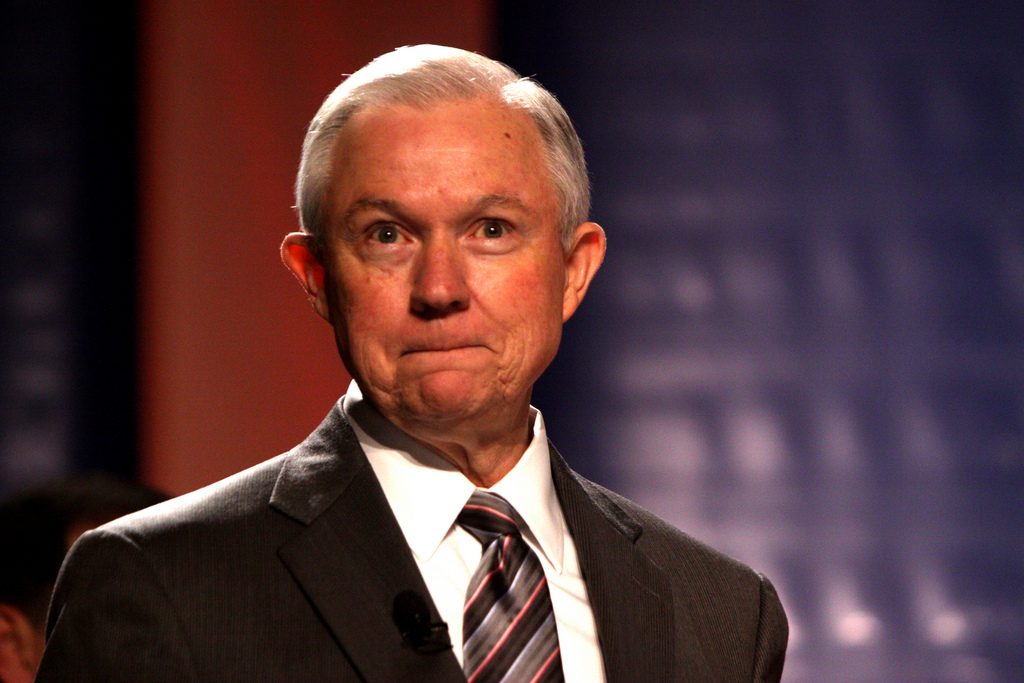
Photo Credit: Gage Skidmore, ShareAlike 2.0 Generic
Two weeks ago, the Justice Department ended yet another Obama-era policy that allowed money from legal settlements to go to third-party organizations. Attorney General Jeff Sessions released a memo (dated June 5th) demanding that all settlement funds are to go directly to the victims involved in the case. The guidance could majorly affect large banks, as many of the settlements in recent years have been with institutions such as Barclays PLC, Credit Suisse Group AG, Royal Bank of Scotland Group PLC, Wells Fargo & Co, UBS Group AG and HSBC – all groups who were directly or indirectly involved with the sub-prime mortgage crisis in 2008.
Obama-Era Policy
Following the 2008 crisis, the Obama administration wanted banks to take responsibility for the mortgage-backed securities that played a crucial role in the “great recession.” As a result, between 2013 and 2016, part of the $46 billion in settlements went directly to third-party groups involved in housing aid and other helpful activities.
One such settlement was in 2016 when a US judge approved a $14.7 billion settlement, which included $2 billion that went toward electric vehicles, zero-emission programs and other green initiatives.
And in 2014, the DOJ reached a historic $16.65 billion settlement with Bank of America, which allowed the company to donate $100 million of the total to community organizations.
Sessions’ Statement
Referring to the Obama-era policy, Sessions said in a press release, “In recent years the Department of Justice has sometimes required or encouraged defendants to make these payments to third parties as a condition of settlement.” He added, “We are ending this practice and ensuring that settlement funds are only used to compensate victims, redress harm, and punish and deter unlawful conduct.”
Sessions made it plainly clear that the 94 US attorneys should not pursue a settlement “that directs or provides for a payment or loan to any non-governmental person or entity that is not a party to the dispute.”
However, Sessions included three exceptions: legal or professional services; legally mandated payments such as restitution; and payments meant to directly compensate for damages.
Damaging Effects
Amy Spitalnick, a spokeswoman for New York Attorney General Eric Schneiderman, said Sessions’ directive “is ill-advised and ignores the tens of thousands of families who were helped by housing service providers across the country in the wake of the financial crisis.”
According to Eric Schaeffer, executive director of the Environmental Integrity Project, the new policy could negatively impact a settlement between the DOJ and Fiat Chrysler, which is still in process. That settlement would address the car company’s allegedly illegal use of software to circumvent emissions tests, much like the VW settlement. And as Schaeffer put it, in this case “violators won’t be required to support development of low emission vehicles to compensate for illegal pollution from the dirty engines they designed,” as VW was made to do.
The DOJ’s $12 million settlement with Harley Davidson, which hasn’t been finalized, is supposed to include a condition requiring the company to give $3 million to a third-party organization that replaces conventional woodstoves. However, with the recent directive from Sessions, it’s not certain that this settlement will go through as planned.
Collective Harm
One organization that has received money in the past through DOJ settlements is Interest on Lawyers Trust Accounts (IOLTA), a group devoted to increasing “access to justice for individuals and families living in poverty and to improve our justice system.” Though Sessions said the reason for the memo is “to compensate victims, redress harm, and punish and deter unlawful conduct,” it seems the directive could result in furthering collective harm to groups of people hurt by the actions of large corporations.



Leave a Comment